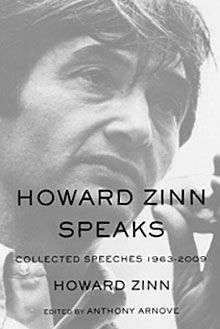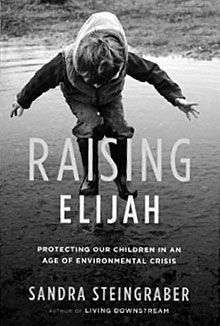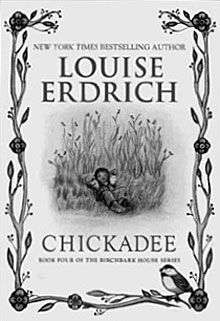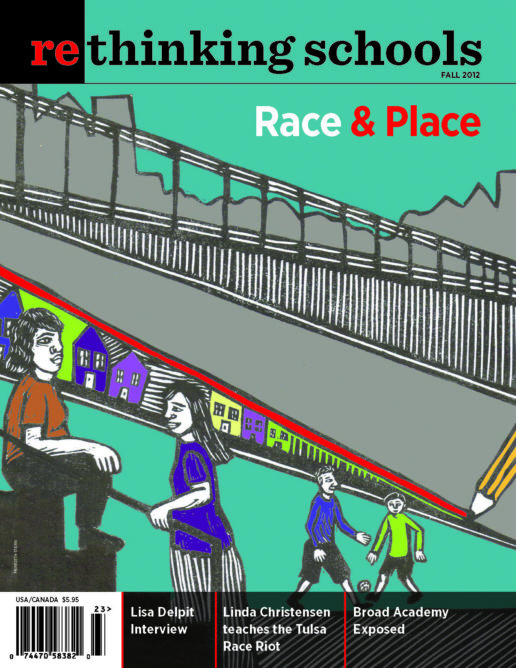Resources 27.1
CURRICULUM
The Sky’s the Limit: People v. Newton, The REAL Trial of the 20th Century?
By Lise A. Pearlman,
foreword by Eldridge Cleaver
(Regent Press Printers & Publishers, 2012)
826 pp. $29.95
What trial would you define as the “trial of the 20th century?” That’s the challenge to readers of former judge Lise Pearlman’s people’s history of major 20th-century court cases. The choices include the murder trial of Big Bill Haywood, the post-conviction lynching of Leo Frank, the railroading of the Scottsboro Nine, the Rosenberg espionage trial, and more. The description of each case leaves one convinced as to its significance. The author has her own opinion, People v. Huey Newton, and dedicates half of this voluminous book to making her case. Teaching important trials would be an excellent way to engage high school students in exploring key social questions throughout history, and The Sky’s the Limit would be an essential resource.
Howard Zinn Speaks: Collected Speeches 1963-2009

By Howard Zinn, edited by Anthony Arnove
(Haymarket Books, 2012)
320 pp. $26.95
“Can you hear me OK?” Howard Zinn asked as he checked the mic for a keynote speech at a National Council for the Social Studies conference. At the resounding yes from the audience of 800-plus teachers, Zinn responded with his trademark wry humor: “Good. When you speak, you like to be heard.” Now, thanks to Anthony Arnove and Haymarket Press, we can all “hear” a lot more of Howard Zinn. Best known for A People’s History of the United States, Zinn wrote and spoke about a wide range of issues, including war, the death penalty, elections, civil disobedience, and the First Amendment. As Naomi Klein says, “With ferocious moral clarity and mischievous humor, Howard turned routine antiwar rallies into profound explorations of state violence and staid academic conferences into revival meetings for social change.” These speeches make great reading for students and teachers—especially when read aloud.
POLICY
Educational Courage: Resisting the Ambush of Public Education
Edited by Nancy Schniedewind and Mara Sapon-Shevin
(Beacon Press, 2012)
209 pp. $19
Co-editors Schniedewind and Sapon-Shevin set out to collect the “voices of those who are resisting legislation, policies, and practices that are inconsistent with a democratic vision of education and society.” The key word here is resist. There is no shortage of critiques of standardized testing, top-down mandates, and education “reform” designed by those who are more passionate about breaking unions than about educating children. Tales of defiance to these policies are not as abundant. Schniedewind and Sapon-Shevin knit together the stories of teachers, parents, scholars, and activists who have found imaginative ways to say no and “to act with courage and hope.” A few of the contributions in the book—from Jessica Klonsky, Bob Peterson, Stephanie Walters, and Kathy Xiong—began as articles in Rethinking Schools.
Getting Out from Under: A Human Rights Alternative to the Corporate Model of Public Education in New York City
By the Independent Commission on Public Education
(icope.org, 2012)
48 pp. free download
Getting Out from Under is both a catalog of corporate reform horrors during a decade of mayoral control in New York City and a useful programmatic document. It emerged from the Independent Commission on Public Education’s Education Is a Human Right campaign, “whose purpose was to show that a more just, democratic, and effective education system is possible.” In a concise format, ICOPE identifies the elements of an educational system: from funding and curriculum to governance, classroom practice, and parent participation. Then, for each element, they briefly describe the official “Bloomberg/business model” policies, offer a short, sharp critique of those policies, and outline alternatives rooted in a human rights framework. Getting Out from Under is a useful tool for explaining how corporate education reform plays out in specific areas and for engaging people in discussion about positive alternatives.

Raising Elijah
By Sandra Steingraber
(Da Capo Press, 2011)
342 pp. $26
The Elijah in Raising Elijah is author Sandra Steingraber’s son, named after the great abolitionist Elijah Lovejoy, who lost his life denouncing slavery. Steingraber, a biologist and poet, sees the environmental crisis as “the great moral crisis of the day” and, she writes, “the main victims of this unfolding calamity are our own children.” Raising Elijah is a personal, poignant, and angry book that chronicles Steingraber’s efforts to defend her—and everyone’s—children against the manufactured toxins that insinuate themselves into our lives. This is not so much a handbook to protect one’s own child as it is a call to collective action to protect all our children. We recommend following Steingraber’s fine columns in Orion magazine, where parts of this book first appeared.
DVD
Heist: Who Stole the American Dream?
By Frances Causey and Donald Goldmacher
(Bullfrog Films, 2012)
Three versions:
76 min., 56 min., and 22 min.
Heist is a documentary that explains the dramatic shift in the United States in the 1970s to neoliberalism, when corporations increased their power and wealth, and undermined the relative prosperity that developed after the New Deal. The filmmakers show how corporations schemed to deregulate and cut taxes on the wealthy while outsourcing production—culminating in record inequality, financial meltdown, and economic austerity. Analysts examine the long-term strategy of the U.S. Chamber of Commerce, wealthy families like the Coors and Kochs, and corporations to influence both political parties, the Supreme Court, universities, and the media. The film ends with ways to fight back through public funding of elections, changes in tax and energy policy, and support for labor unions, worker-owner cooperatives, and grassroots democracy. This film would be a valuable resource in high school history, economics, or government classes.
NOVEL

Chickadee
By Louise Erdrich
(Harper, 2012)
196 pp. $16.99
In 1999, Louise Erdrich introduced Omakayas, the 7-year-old Ojibwe girl at the heart of Birchbark House. Set in the mid-1800s in Lake Superior, Birchbark House chronicles the lives of Omakayas and her family in an era when American Indians’ lives, lifestyles, and homelands were increasingly under threat by white settlers and soldiers. Chickadee is the fourth book in the series. Omakayas’ twin boys, Chickadee and Makoons, carry the story forward. Erdrich eloquently imparts traditional Ojibwe stories, history, spirituality, and knowledge in the seamless way this knowledge is told within Native families and communities. Readers will come away from this small book with a sense of a people’s perseverance and an appreciation of the writer’s art in stringing together words to elegantly convey place, thought, and emotion. Third grade and up.
PICTURE BOOK
Tea Cakes for Tosh
By Kelly Starling Lyons,
illustrated by E.B. Lewis
(Putnam Juvenile, 2012)
32 pp. $16.99
Tosh, a young African American boy, learns from his grandmother Honey how to make teacakes, a family recipe passed down from his great-great-great-great-grandmother Ida. “Long ago, before you and I were born,” Honey tells Tosh, “our people were enslaved.” She explains that even though Ida baked these cookies, she was not allowed to feed them to her own children. “Some days, Grandma Ida made a few extra, just the right size for hiding in her pocket. She risked being whipped to give the children a sweet taste of freedom.” The history of enslavement is presented in an age-appropriate way that encourages young children to ask questions. Lyons also weaves in themes on aging and the importance of memory: Grandma Honey starts forgetting things she knew by heart, even the teacake recipe. Tosh knows the recipe from all the times he’s baked with Honey, so now it’s his turn to share the recipe and stories. At the end, Honey joins in the telling, “their words flying free.” For age 5 and up.

